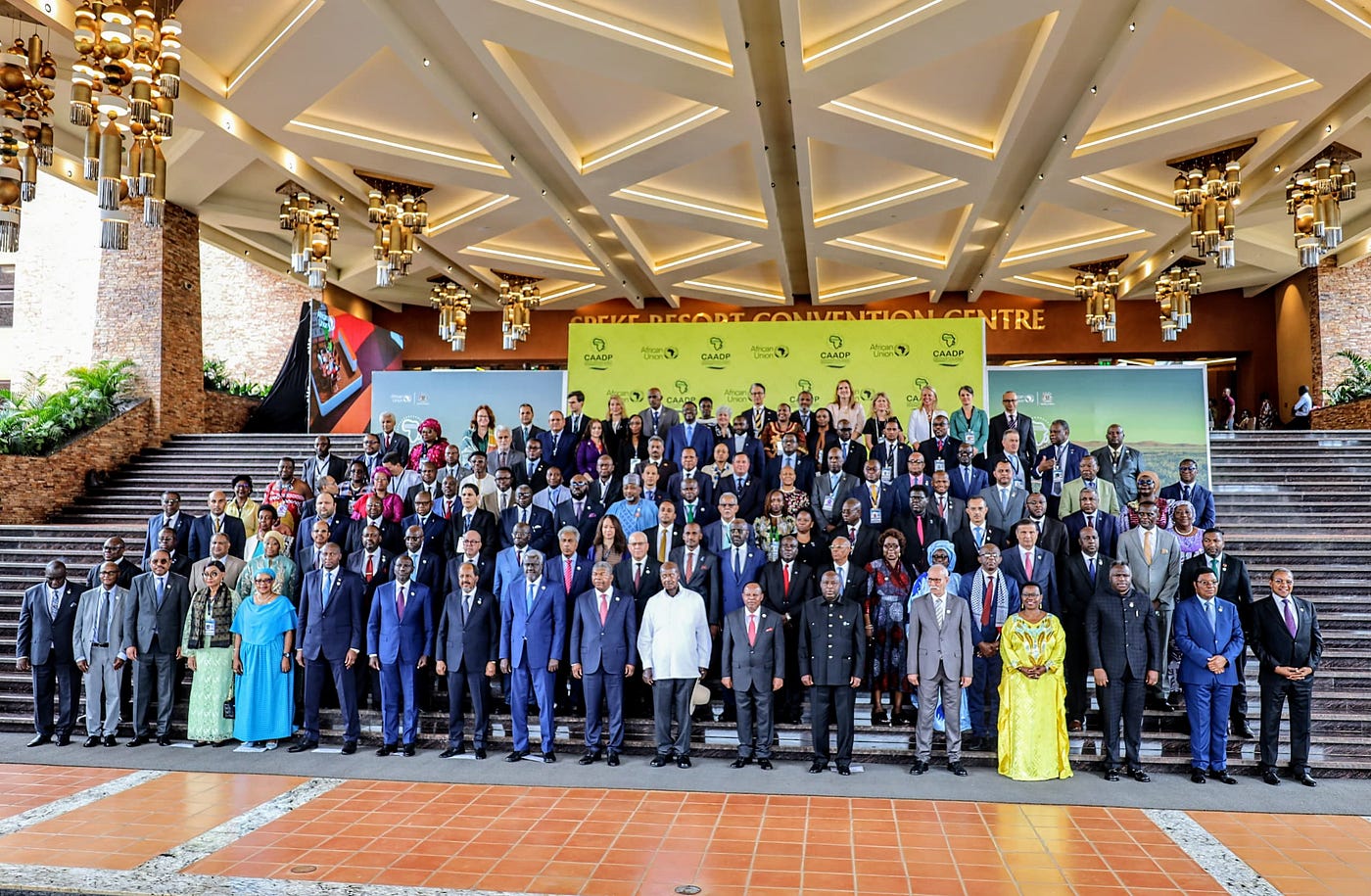The Kampala Declaration, adopted by the Member states in January 2025, marked the third decade of the renewed commitment of AU member states to a policy framework for Agricultural transformation, wealth creation, food security and nutrition, rural development, economic growth, and resilience.
The main objective of this CAADP framework is to promote an agricultural-led development that eliminates hunger, reduces poverty and food insecurity, and delivers economic growth and sustainable development. This declaration builds upon the commitments made under the 2003-2014 Maputo Declaration and the 2014-2025 Malabo Declaration
The 20-year CAADP journey has been marred with multiple challenges including weak policy and institution framework, poor and uncoordinated public and private investments, rigidity and inflexible donor country budgets, weak M&E systems, inadequate non-state actors’ participation, and gender mainstreaming among others.
Read Also: The Kampala CAADP Summit: A New Era For Women’s Leadership in Agriculture
Several lessons have been learned including the value of delivering comprehensive support in a holistic and well-coordinated manner, Country ownership is key in supporting demand-led interventions, the need for systemic private sector engagement in the implementation of CAADP, and the need to align CAADP inspirations with National Development plans, budgets, and reporting systems.
The Kampala Declaration comes at a time when; 20.4 percent of Africa’s population experiencing hunger and 58 percent facing food insecurity, the continent is struggling to meet basic food and nutrition security needs, and 924.8 million people cannot afford healthy diets, exacerbating food insecurity and malnutrition, malnutrition remains a growing concern in Africa despite some progress in reducing stunting rates, Women still face barriers in accessing production resources despite their dominance in agrifood system in most African countries and Africa steadily growing into a net food importer while African Countries trade less among themselves and more with other continents. Covid 19 and Climate change revealed the fragility of Africa’s Agrifood system where land and labor productivity is under decline, and Africa is fast losing its biodiversity both on land and water.
Read Also: Stakeholders Call For Continental Action Toward Strengthening Food System Governance in Africa
Building on the Maputo and Malabo momentum, we are optimistic that the 6 pillars upon which the Kampala agenda is built, i.e. Sustainable Food Production, Agro industrialization and Trade, Promoting sustainable food production, Boosting Investment and Financing for agricultural transformation, Ensuring food and nutrition security, Advancing Inclusivity and Equitable livelihoods, Building Resilient Agrifood systems, and Strengthening Agrifood Systems Governance, with no doubt are the best means within a decade to transform the Africa Agrifood system.
The people of Africa should know that CAADP implementation and its outreach to the last mile food producer and consumer entirely depends on the commitment, investments, and priority setting of the AU member states at the National and local levels. Our governments should, therefore, translate the CAADP inspirations from rhetoric to practice. The people should demand CAADP accountability from their leaders at local and National level for the commitment made. Everybody has a role to play.
As Civil Society, we remain committed to creating a dedicated framework to oversee the National and Regional Agrifood Systems Investment Plans (NASIPs/RASIPs), ensuring transparency and accountability in their implementation, advocating for resource allocation for agrifood systems development, enhancing funding opportunities and support for NASIPs/RASIPs initiatives, and promote sustainable and equitable agricultural practices in agrifood systems transformation.
